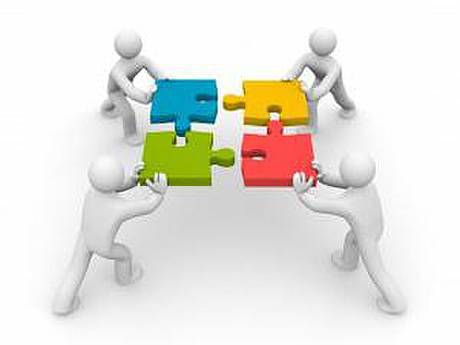
It is impossible to implement important reforms without a regular honest and effective mutually responsible dialogue between the government and public associations with the participation of the international community. Establishing this dialogue, turning conclusions from it and initiatives into the basis of social changes, replacement of declarations about consolidation with specific socio-economic and cultural projects based on the unification of the society – these are the most important tasks in the country. This was expressed by the majority of participants in the National Forum "The Transformation of Ukraine" in Kyiv. Representatives of non-governmental organizations, business, education, culture, and science associations, the clergy, international community, and diplomatic missions initiated the event, organized, and participated in it.
Head of the Ukrainian Greek Catholic Church Patriarch Sviatoslav said that the country's social forces were self-organizing and needed a fruitful discussion. He added that the church was honored to apply its efforts towards this. This forum has to become regular and involve the best representatives of the Ukrainian society as well as representatives of the government in order to develop a modern competitive Ukraine.
"Ukraine's national idea has to be based on the commitment to modern European values – supremacy of law, freedom of speech, high quality of citizens' living standards, competitive economy. In light of the unprecedented socio-economic, political, and military challenges our country is facing, establishment of a wide, equal, and mutually responsible dialogue between the government and the society is a vitally important task," Head of the Anti-Crisis Council of Non-Governmental Organizations and President of the Ukrainian League of Industrialists and Entrepreneurs (ULIE) Anatoliy Kinakh said.
"Democracy is a regular dialogue, a dialogue which is based not on arguments and opposition of one part of the population to another, but understanding, rejection of stereotypes, and partnership. New member states of the European Union (EU), including Poland and Lithuania, have experience of overcoming crisis developments via public discussions, and Ukraine should learn from this," Head of the EU Delegation to Ukraine, Ambassador Jan Tombinski said.
It was decided that the forum will work at the national and regional levels in segments, including the business climate, agriculture, energy, education and science, judicial reform, social protection, civil society development, streamlining the country and its economy with the EU conditions, regional development, etc. Expert working groups responsible for each segment are being formed.
The participants in the forum also decided to support an initiative of the Anti-Crisis Council of Non-Governmental Organizations to elaborate and implement the Transformation Program of Ukraine, for which a working group of Ukrainian and international experts has to be formed.
They also stressed that high dynamics of the dialogue and systemic changes were necessary as the country's development strategy and modernization program have to be drawn up as soon as possible. The forum will carry out regular public monitoring and control of changes in the spheres of public administration, judicial system, law enforcement agencies, and economy, as long as today the society takes the imitation of reforms, active work to overcome the crisis, and transfer to sustainable development quite negatively.
The forum participants also stressed that the forum's supervisory board was open for new members. It was decided to hold the next sitting of the national forum in December 2015 and raise the issues of civil society development during it. A statement will be drawn up on the results of the forum and sent to the country's top leadership and representatives of the international community.